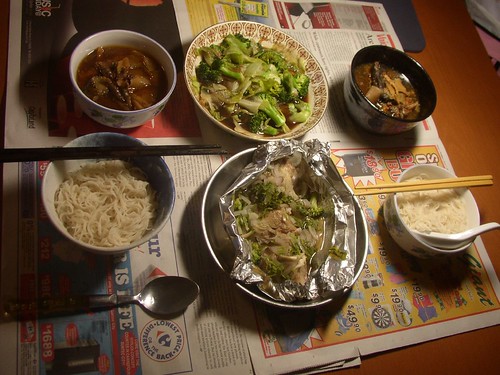 Prior to the Asian Financial Crisis in 1997-1998, the Singapore economy was growing, people were getting wealthier, jobs were plentiful and many of us thought that the 5 Cs represented the tangible measures of success in Singapore Inc.
Prior to the Asian Financial Crisis in 1997-1998, the Singapore economy was growing, people were getting wealthier, jobs were plentiful and many of us thought that the 5 Cs represented the tangible measures of success in Singapore Inc.
The 5 Cs were:
- Cash
- Credit Cards
- Car
- Country Club Membership
- Condominum
Fast forward to 2007, 10 years after the property, stock and job markets plunged for some time, we are again moving towards a time of rising property prices for mid to high end developments, full employment in "hot" sectors of the economy such as financial services and hospitality and the STI is at its historical highs durign recent days.
So what does that bode for us and how can we learn our lessons of using the 5Cs as a yardstick of success in Singapore?
You and all may have different attitudes towards the 5Cs, but we can be selective and look to those Cs that actually do help us achieve our financial freedom.
1. CashLet us examine the first C, i.e. Cash. Cash is still important to one's financial freedom as with cash in its liquid form, one can participate in the stock market and even property market bubble if one has sufficient amounts of it. It also allows us to move from one asset class to another depending on the time and situation. It is still core to being financially free, i.e. to amass positive cash flows that exceed our living expenses. The trick is to find good returns for cash in the current interest rate regime where bank deposits pay less than 1% on savings and fixed deposits hardly exceed 2% even on tenures of 12 months.
2. Credit CardsCredit cards are still useful if we make them our tool instead of being enslaved by easy credit. It is a mode of payment and if you pay up within the credit period and never make use of the credit or cash advances usually charged at 24% per annum, you are doing okay. Even personal credit lines are a trap for the unwary. 12 to 16% per annum is lower than 24% but 0% by paying up within the 20-30 days is the most prudent.
3. Car
A car is a liability in my books. Decide for yourself if it is worth it. Car loans are also a form of credit and current car loan rates are higher than even mortage loan rates. So do be careful of what debt you are getting yourself into.
4. Country Club MembershipThe era of the countryclub membership is over. Join a country club only if you use the facilities or do regular golfing and even then consider the value-for-money versions such as NUSS, NTU and Polytechnic Alumni Clubs. Many of the institutions of higher learning have their own Alumni Clubs which have a relatively lower joining fee and subscription. Consider these instead of spluring $50,000 to $200,000 on high end country club memberships.
5. CondominiumThe condominium is a two-edged asset. If you had bought the private apartments that were targeted by developers for en-bloc sales, then congratulations on making a windfall gain. However, consider the need to shift to a less expensive neighbourhood as the property bubble makes it more expensive to buy a similar unit in a similar area. The property bubble does not distribute its benefits across all private housing. It's all about location, location and location and the central district 9,10 tend to be the ones that are moving up. Lower-end condomimiums such as Executive Condos and those in less choice locations have not moved as much as the high end property index. There are some many people in negative equity over such purchases. However, if your home is owner-occupied, and your job is reasonably stable, just keep up with the mortgage payments since you do need a roof over your head. However, those who have condominiums or private property for rent would benefit from the relatively tight rental market as the influx of immigrants to Singapore's growing economy is creating demand for rental units. Hence, rentals may be good even if valuations may not be. So for those of you who own rental units, should just reap the benefits whilst it lasts. Nobody knows if the China equity market would collapse and bring another round of Asian contagion that will burst our own equity market bubble.
ConclusionFinancial freedom still requires us to work hard, save and invest in assets (cash, condo) that will generate more passive income for us. Use credit cards as a payment mode and for discounts but be wary of the debt trap. Cars and country club memberships are a big no-no unless one looks for one that fits one's budget but there are lifestyle expenses and not assets at all.
Examine your own view on the 5Cs and be well and prosper!















